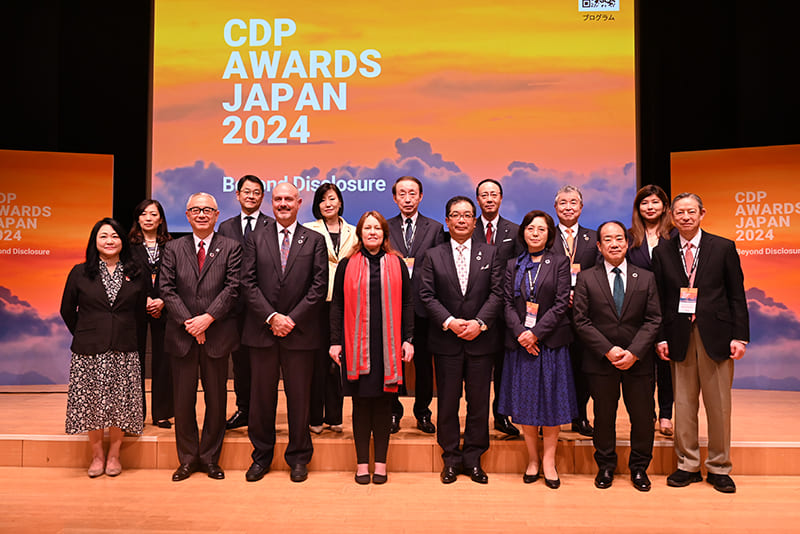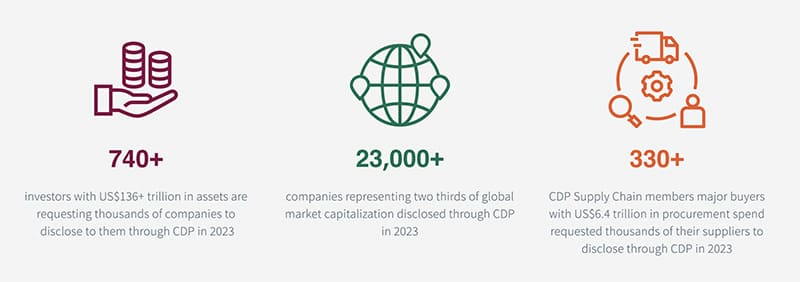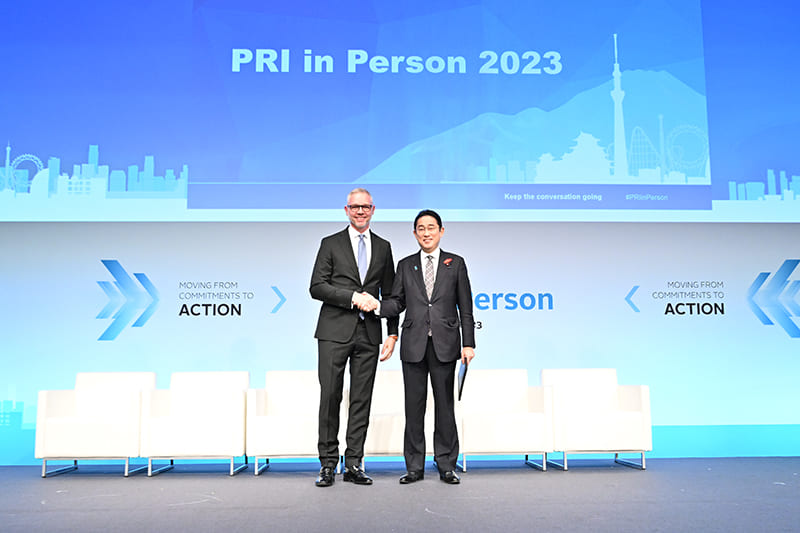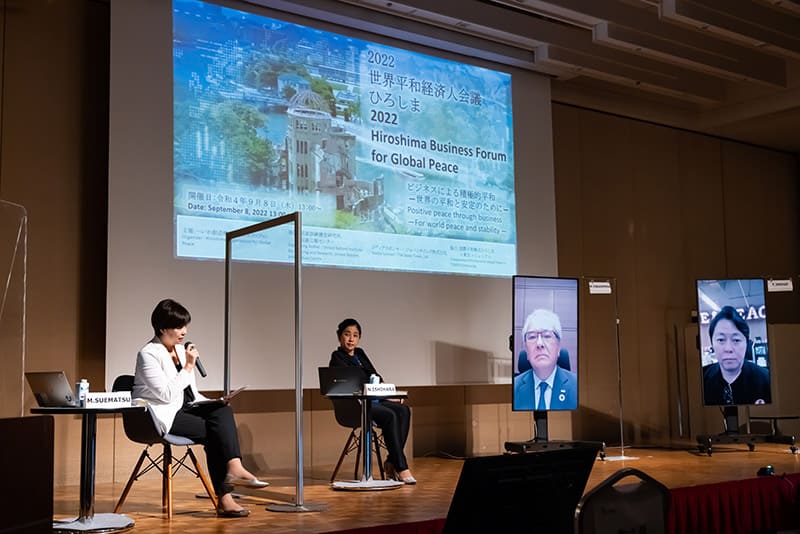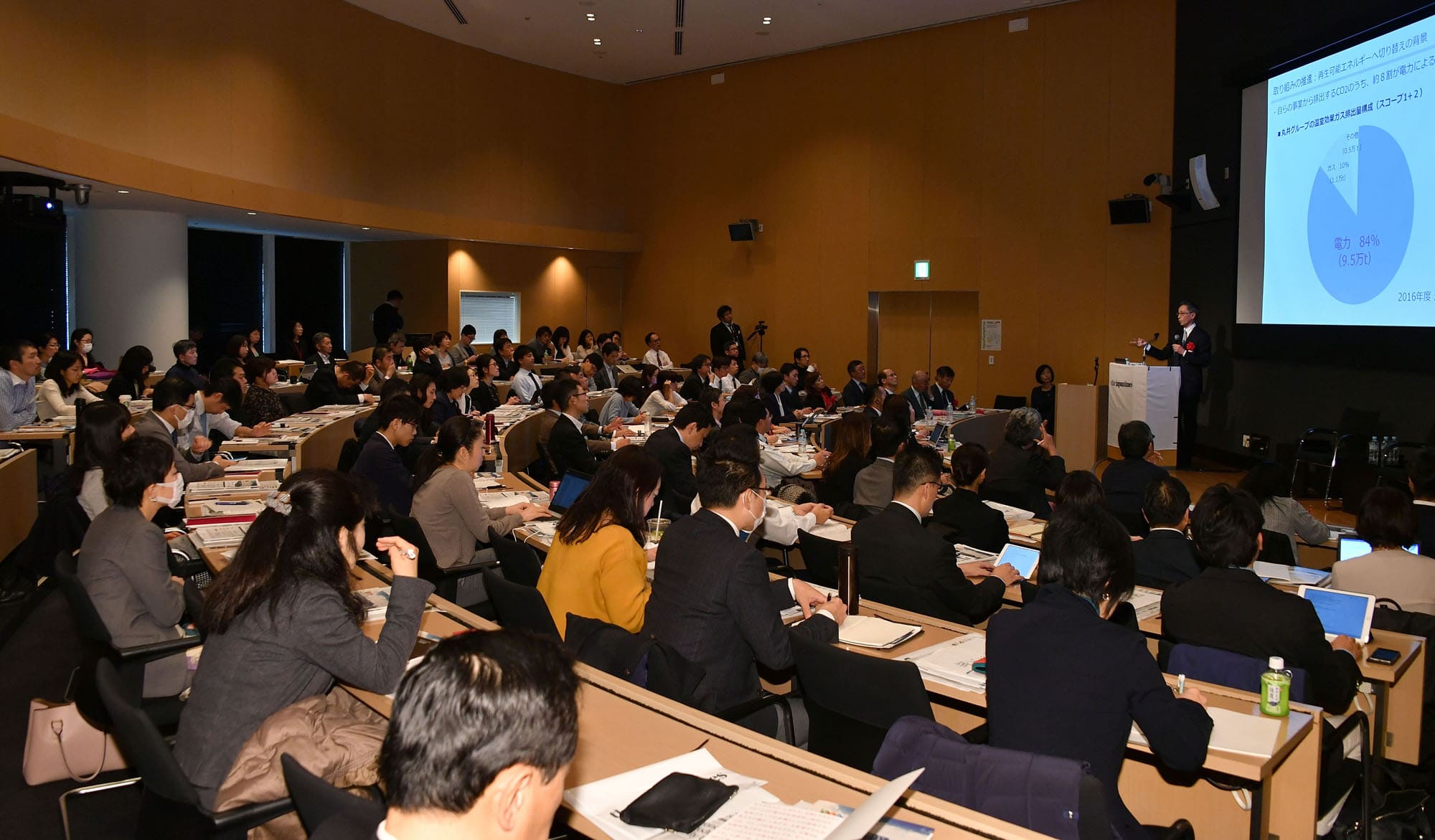November 02, 2020
Japan climate summit draws participants from around globe
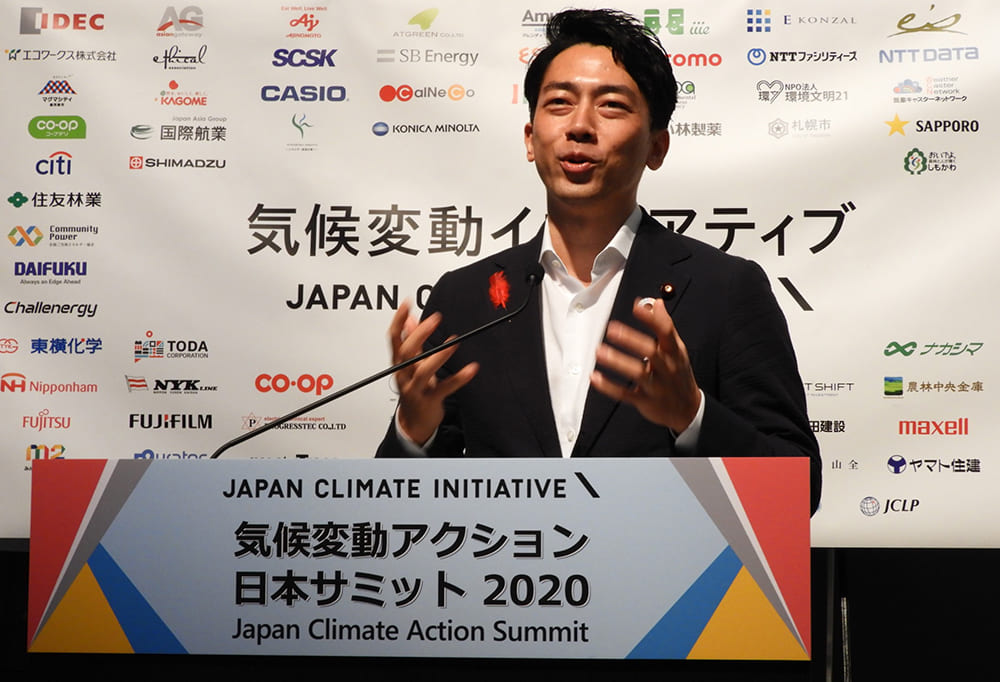
The Japan Climate Action Summit 2020 brought together leaders in the public and private sectors from around the country, as well as climate activists from Japan and overseas.
This year’s event, which was hosted by the Japan Climate Initiative on Oct. 14, was streamed via Zoom due to the coronavirus pandemic, drawing about 1,500 people from around the world. Some speakers and most panel participants were able to gather in person.
Indeed, the coronavirus pandemic was a constant presence at the summit, primarily due to the effects it has had on the global economy, and how this in turn relates to issues and trends in pollution and carbon dioxide emissions.
In his keynote address, Seita Emori, deputy director of the Center for Global Environmental Research at the National Institute for Environmental Studies, cited research estimating that at the peak of the lockdowns in April, global carbon dioxide emissions were down 17 percent compared to last year’s average.
However, he noted that emissions have crept back up as lockdowns are loosened and some nations get a handle on the virus, which suggests any “new normal” will not be much different from the old normal in terms of carbon emissions.
The next keynote speaker, JCI Representative Takejiro Sueyoshi, painted a long-term picture of global business trends as they relate to fossil fuels and emissions.
Sueyoshi noted that General Electric and Exxon Mobil, two corporate giants that have made billions from fossil fuels, were dropped from the Dow Jones Industrial Average in recent years, which he called an important symbol of the slow but steady retreat of fossil fuels from our lives.
Nevertheless, after going through a lengthy list of companies and sectors that have moved toward decarbonization, he criticized the response of the Japanese government as tepid and called for bold leadership on climate issues.
Despite these criticisms, the government had a strong presence at the summit. Senior officials from the Foreign Ministry and the Economy, Trade and Industry Ministry gave congratulatory remarks, as did Environment Minister Shinjiro Koizumi, and all of them pledged support for decarbonization efforts.
Nevertheless, as noted by Nigel Topping, Britain’s high-level climate action champion for the 2021 United Nations Climate Change Conference, the government representatives did not announce any new emissions targets.
In his special keynote speech, Topping declared that a “zero-carbon economy is inevitable” and praised the Race to Zero Campaign, in which businesses, universities, municipalities and other organizations pledge to achieve net zero carbon emissions by 2050.
Topping said that at the moment, “Japan is not leading in its policy and thinking on climate change” and encouraged the setting of a “very clear end date on net zero.”
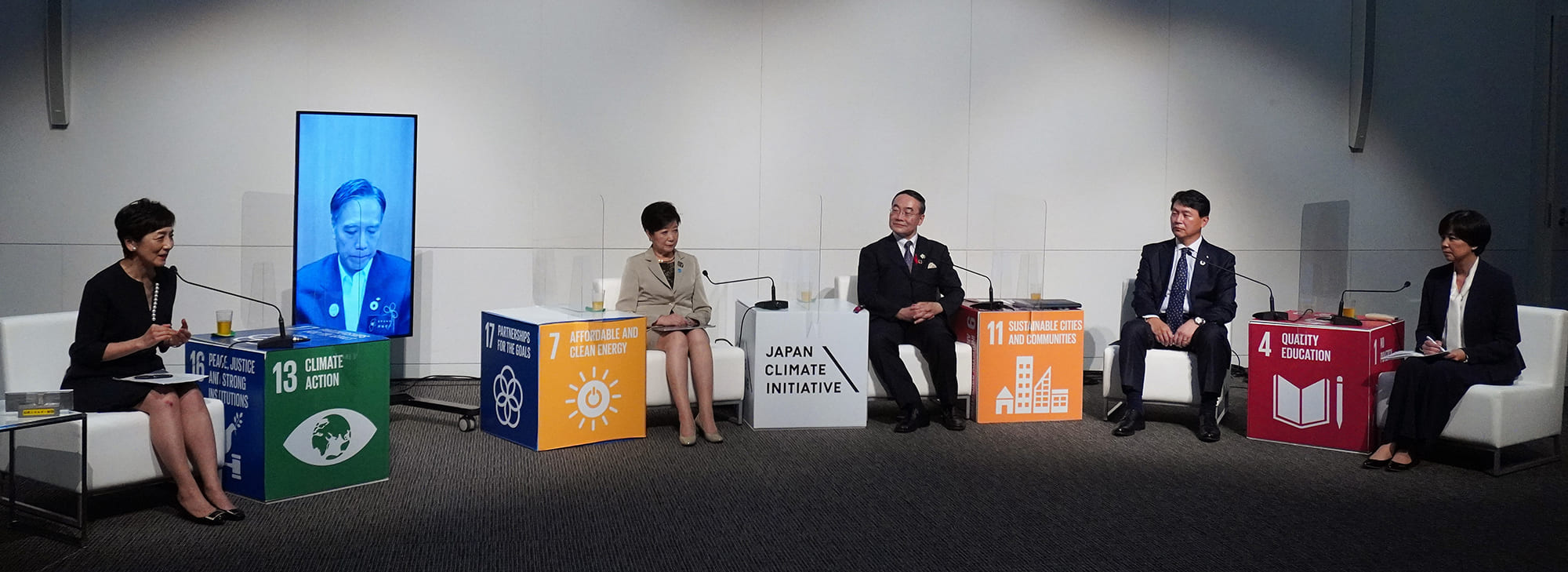
Just days after the conference, Prime Minister Yoshihide Suga announced to the Diet a goal of achieving net zero carbon emissions for Japan by 2050 through a “green society” strategy creating a virtuous cycle between the economy and the environment.
The summit also featured two panel discussions: one bringing together leading actors on climate action from government, business and civil society, and another featuring top leaders in the private and public sectors who are driving current environmental policy.
Kazuhiro Inoda, the supervising director of global environment and policy at the Kyoto city government, described how his city is leading from the ground up by setting emissions targets that are more ambitious than those of the central government.
By 2030, Kyoto seeks to reduce emissions by at least 45 percent compared to 1990 levels, which is considerably higher than the central government’s goal of a 26 percent cut.
While individual and smaller actors can provide inspiration and serve as important test cases, Nissay Asset Management Corp. CEO Hiroshi Ozeki noted in the Top Leaders Session that support from the very top is crucial. He said that while “Japanese companies often invest in renewable energy sources overseas thanks to the existence of green bonds, there are fewer opportunities in Japan.” These bonds are used to finance projects intended to fight climate change and provide investors with an added layer of security.
Other well-known participants in the summit included Michael Bloomberg, the philanthropist, businessman and former New York mayor, and Tokyo Gov. Yuriko Koike. Their presence, along with those of other prefectural governors and a Cabinet member, signaled that climate change is receiving attention from the highest levels.


